1. Overview
Timothy Peter Johnson (December 28, 1946 - October 8, 2024) was an American lawyer and politician who dedicated his career to public service, primarily representing the state of South Dakota. A committed member of the Democratic Party, Johnson served in both chambers of the South Dakota Legislature before being elected to the United States House of Representatives for five terms and subsequently as a United States Senator from 1997 to 2015 for three terms. His tenure was marked by a persistent focus on improving the quality of life for South Dakotans, especially through critical infrastructure development and advocacy for rural communities. As a centrist Democrat, he navigated complex policy issues, demonstrating resilience and commitment to his constituents, even after suffering a life-threatening cerebral hemorrhage during his Senate career. Johnson is recognized as the last Democrat to hold statewide or congressional office in South Dakota, leaving a significant legacy in the state's political landscape.
2. Early Life, Education, and Legal Career
Timothy Peter Johnson was born on December 28, 1946, in Canton, South Dakota, to Ruth Jorinda (née Ljostveit), a homemaker, and Vandel Charles Johnson, an educator. Johnson had a diverse Scandinavian ancestry, with Norwegian, Swedish, and Danish roots. He was raised in Vermillion, South Dakota, where he pursued his higher education at the University of South Dakota. There, he earned a Bachelor of Arts in 1969 and a Master of Arts in 1970, both in political science. During his time at the university, he was also a member of the Delta Tau Delta fraternity.
Following his post-graduate studies at Michigan State University from 1970 to 1971, a period during which he gained valuable experience working as a budget consultant for the Michigan Senate. He later returned to Vermillion to attend the University of South Dakota School of Law, where he completed his Juris Doctor in 1975. Immediately after receiving his law degree, Johnson entered private legal practice. He was admitted to the South Dakota Bar through the state's diploma privilege system, which allowed graduates of accredited law schools within the state to practice law without taking a separate bar examination.
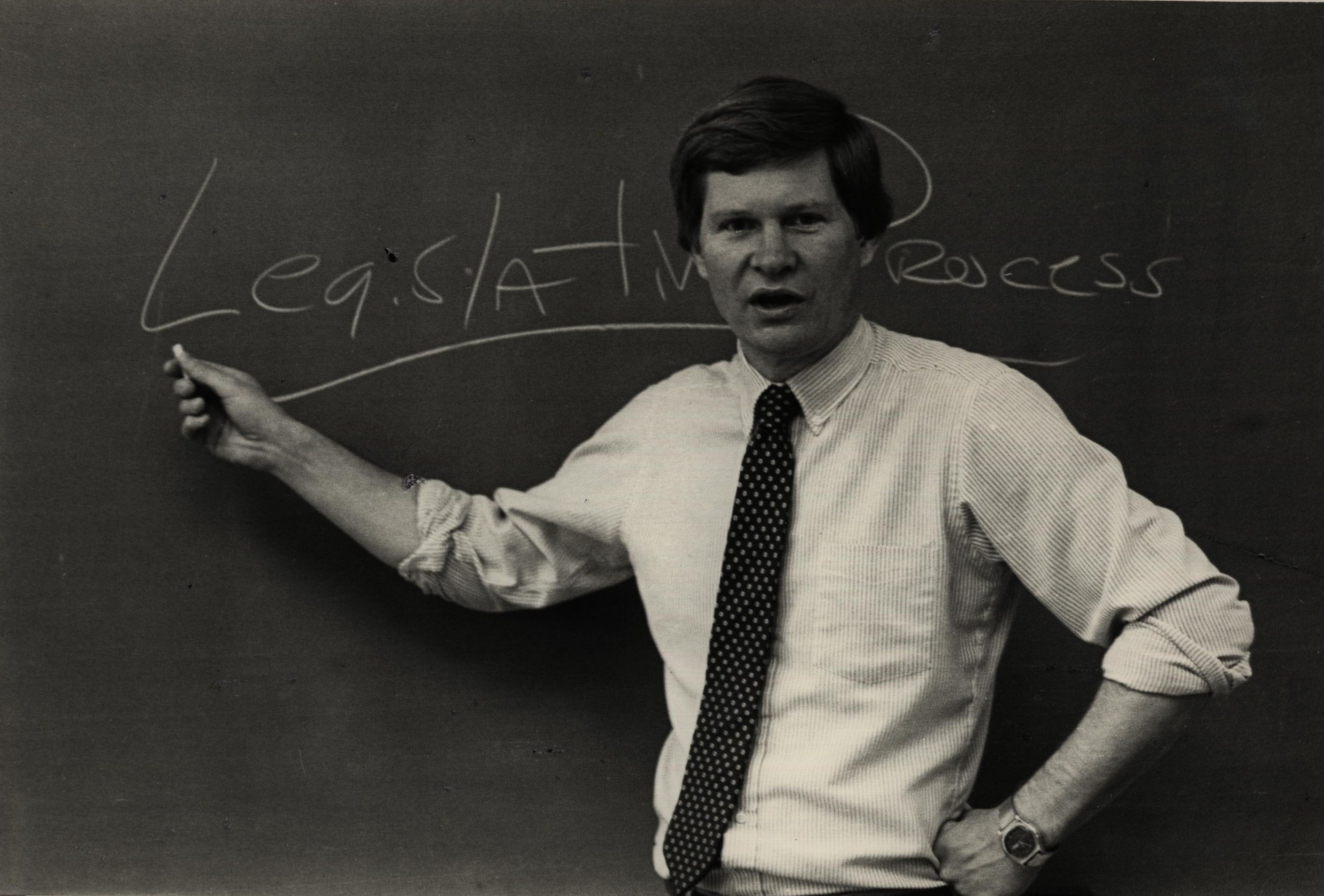
3. Early Political Career
Timothy Peter Johnson's political career began at the state level, where he served in both chambers of the South Dakota Legislature and held a local prosecutorial role before advancing to federal office.
Johnson was first elected to the South Dakota House of Representatives in 1978, serving from 1979 to 1982. He then continued his legislative service in the South Dakota Senate from 1983 to 1986. During his tenure in the South Dakota Senate, he also took on the public service role of Clay County deputy state's attorney in 1985.
In 1986, Johnson was elected to the United States House of Representatives to represent South Dakota's at-large congressional district. During his first term in the House, he distinguished himself by introducing more legislation than any other freshman member. From 1991 to 1994, he further took on a leadership position within the Democratic Party as a regional whip. He concluded his service in the House in 1997 when he began his tenure in the United States Senate.

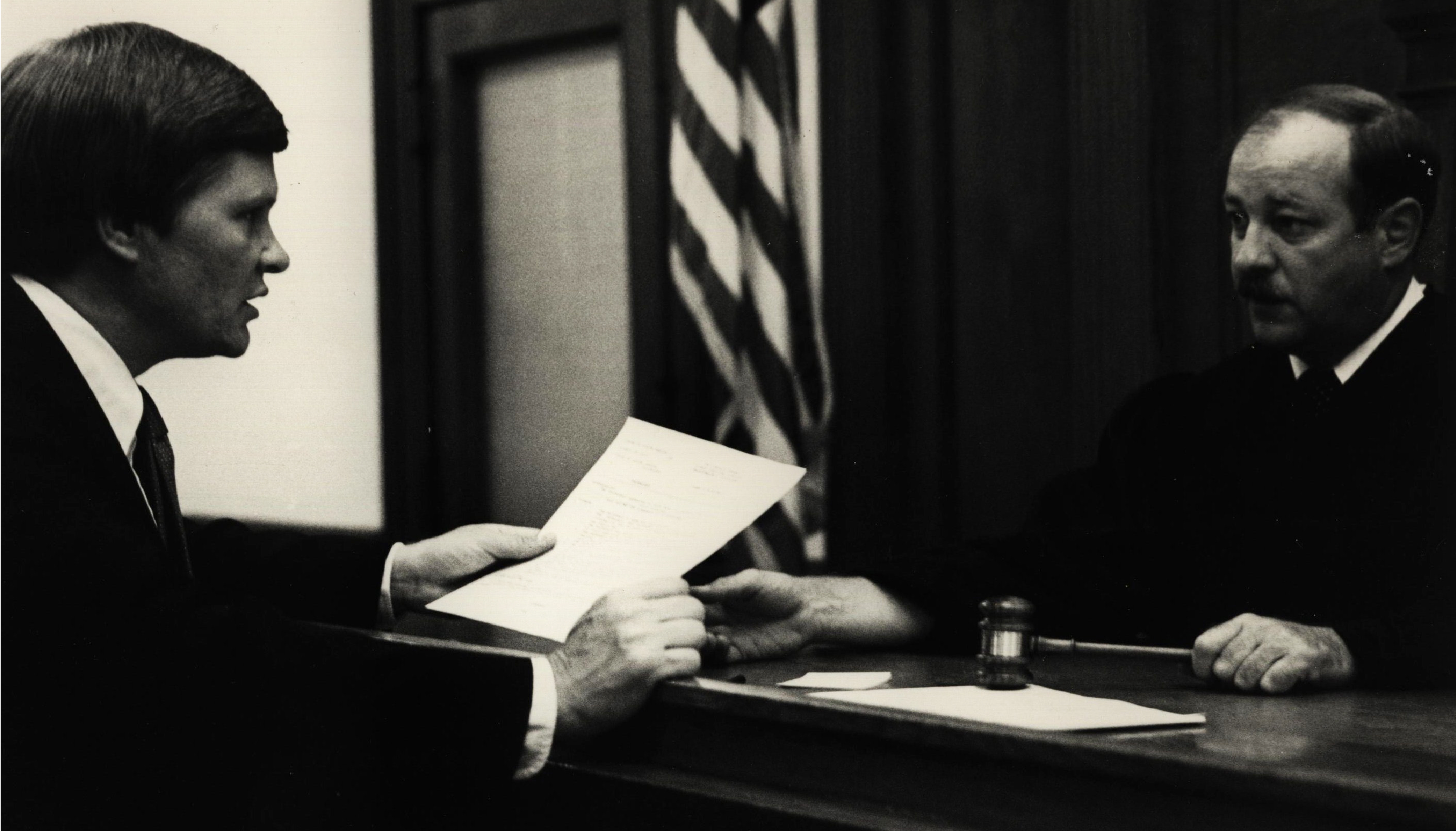
4. United States Senate
Timothy Peter Johnson's career in the United States Senate commenced in 1997. He served as a senator for South Dakota until 2015, choosing not to seek re-election in 2014.
4.1. Illness and Recovery
In December 2006, while participating in a live radio interview in Washington, D.C., Johnson suffered a serious cerebral hemorrhage. The bleeding in his brain was caused by a cerebral arteriovenous malformation (AVM), a congenital defect involving abnormally enlarged and tangled blood vessels. He was in critical condition and underwent emergency surgery at George Washington University Hospital to drain the blood and prevent further bleeding.
The gravity of his condition garnered significant national attention due to its political implications; at the time, the Democrats held a slim one-seat majority in the Senate. Had Johnson died or resigned, it was widely anticipated that Governor Mike Rounds would appoint a Republican to his seat, which would have shifted control of the Senate to the Republicans.
Following the acute medical crisis, Johnson embarked on an arduous and lengthy recovery process that involved intensive physical therapy, occupational therapy, and speech therapy. These efforts were crucial in his journey to regain strength, mobility, and to restore his severely affected speech. The hemorrhage left him with partial paralysis on his right side, necessitating the use of a scooter for mobility. His resilience during this period was widely noted, and in his 2007 State of the Union Address, President George W. Bush extended his best wishes to Johnson. After months of rehabilitation, Johnson made a full return to his Senate duties on September 5, 2007, an event that was met with tributes and standing ovations from his colleagues.

4.2. Committee Assignments
During his time in the Senate, Timothy Peter Johnson served on several influential committees and subcommittees, where he played key roles in shaping legislation and policy.
His assignments included:
- Committee on Appropriations
- Subcommittee on Agriculture, Rural Development, Food and Drug Administration, and Related Agencies
- Subcommittee on Energy and Water Development
- Subcommittee on Interior, Environment, and Related Agencies
- Subcommittee on Military Construction and Veterans' Affairs, and Related Agencies (Chairman)
- Subcommittee on State, Foreign Operations, and Related Programs
- Subcommittee on Transportation, Housing and Urban Development, and Related Agencies
- Committee on Banking, Housing, and Urban Affairs (Chairman)
- Subcommittee on Housing, Transportation, and Community Development
- Subcommittee on Financial Institutions
- Subcommittee on Securities, Insurance and Investment
- Committee on Energy and Natural Resources
- Subcommittee on Public Lands and Forests
- Subcommittee on Water and Power
- Committee on Indian Affairs
Johnson's leadership roles as Chairman of the Subcommittee on Military Construction and Veterans' Affairs and the Committee on Banking, Housing, and Urban Affairs allowed him to directly influence critical policy areas affecting national security, veterans' welfare, and the financial sector.
5. Policy Positions
Timothy Peter Johnson was consistently regarded as a centrist Democrat, whose legislative approach was characterized by a focus on pragmatic solutions and a deep commitment to the welfare of his constituents in South Dakota and beyond. His policy positions spanned a variety of issues, reflecting his dedication to improving infrastructure, supporting agriculture, promoting tourism, ensuring national defense and veterans' care, and overseeing the banking sector.
5.1. Infrastructure
Throughout his time in Congress, Johnson was a strong advocate for critical infrastructure projects, particularly those aimed at ensuring access to clean drinking water for communities across South Dakota and neighboring states. He authored several key water project bills, which led to the delivery of clean drinking water to hundreds of thousands of families.
One of his significant early achievements was authoring the Mni Wiconi Project Act of 1988 (H.R. 2772), which was enacted into Public Law 100-516. This measure authorized the construction of a vital water project serving an area of southwestern South Dakota that included the Pine Ridge Indian Reservation, a region that had historically faced severe challenges with low water supplies and poor water quality. In subsequent years, Johnson authored additional legislation (H.R. 3954) to expand the service area of the Mni Wiconi Rural Water Project, with this expansion eventually incorporated into a broader bill enacted as Public Law 103-434.
Johnson's Mid Dakota Rural Water System Act of 1991 (H.R. 616) was another notable contribution, which became part of a larger package of infrastructure projects and was enacted into law as Public Law 102-575. The Mid Dakota Rural Water Project, completed in 2006, now serves over 30,000 residents in east-central South Dakota.
Further demonstrating his commitment to water access, Johnson spearheaded the Fall River Rural Water Users District Rural Water System Act of 1998 (S. 744 in the 105th Congress, enacted as Public Law 105-352). This act authorized the Bureau of Reclamation to construct a rural water system in Fall River County, South Dakota, addressing a dire need for suitable water supply in the southeastern part of the county, where years of drought had forced many residents to rely on hauled or bottled water due to poor water quality.
He also authored the Lewis and Clark Rural Water System Act of 1999 (S.244 in the 106th Congress), which authorized the construction of a water delivery system designed to serve a broad area across southeastern South Dakota, northwestern Iowa, and southwestern Minnesota. This system connected 22 rural water systems and communities, aiming to provide clean, safe drinking water to an estimated 180,000 individuals within the Lewis and Clark service region. Additionally, the Perkins County Rural Water System Act (S.2117 in the 105th Congress and S.243 in the 106th Congress, enacted as Public Law 106-136) authorized the Bureau of Reclamation to construct a rural water system in Perkins County, South Dakota.
5.2. Agriculture
Johnson was a staunch advocate for agricultural interests, particularly focusing on fair practices and support for family farmers. He worked tirelessly to enact a requirement for country of origin labeling for meat and other agricultural products. He first introduced legislation on this issue in 1992 (H.R. 5855) and continued his efforts until a meat labeling law was finally enacted in 2002 as part of the Farm Bill reauthorization (Public Law 107-171). The enacted law notably included language that Johnson had previously introduced as S. 280 earlier in that Congress. Despite the legislative success, implementation of the labeling law faced significant delays for more than a decade due to opposition from the executive branch and various legal challenges.
His dedication to the agricultural sector extended to supporting cooperative businesses. In May 2007, the National Cooperative Business Association (NCBA) recognized his efforts by presenting him with their Honored Cooperator award. In 2013, the National Farmers Union further honored him with the Friend of the Family Farmer award, acknowledging his deep commitment to ensuring the viability of small-scale family farms.

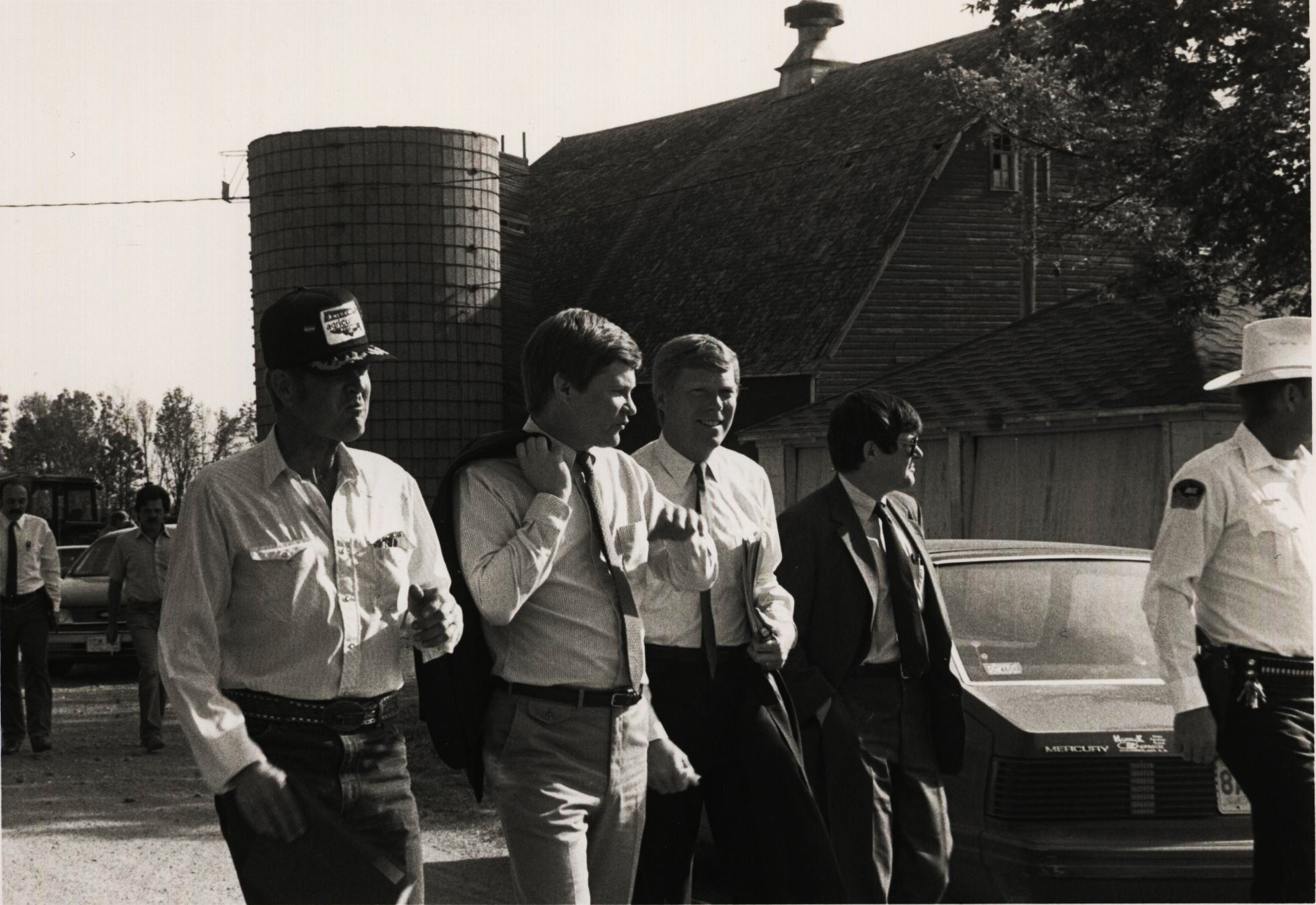
5.3. Tourism and National Parks
Timothy Peter Johnson made significant contributions to promoting tourism and preserving historic sites in South Dakota. He authored the bill (S.382) that led to the establishment of the Minuteman Missile National Historic Site in western South Dakota. This measure was enacted as Public Law 106-115, creating a new unit within the National Park System.
The Minuteman Missile National Historic Site offers visitors an opportunity to learn about the Cold War era and the nuclear missiles that, while posing a threat of massive destruction, also served as a critical deterrent to war. The site's establishment has proven to be a valuable asset for the state, with over 140,000 visitors in 2017, generating an economic impact of over 10.00 M USD for South Dakota.
5.4. Defense and Veterans Affairs
Johnson held strong positions on national defense and was a vocal advocate for veterans' welfare. He was notably the only seated member of Congress to have a son serving in the active duty military when the Senate voted to approve the use of force in Iraq. His oldest son, Brooks, served with the 101st Airborne Division of the United States Army, which was mobilized for combat in Iraq. Despite this personal connection, Johnson ultimately voted to permit the use of force. His son, Brooks, went on to serve in Iraq after having already deployed to Bosnia and Kosovo, and later also served in the conflict in Afghanistan.
As Chairman of the Senate Appropriations Subcommittee on Military Construction and Veterans' Affairs, Johnson was instrumental in securing full and timely funding for veterans' healthcare, an achievement that marked the first time in 21 years such comprehensive funding was provided. He was part of a group of legislators who successfully pushed for the enactment of legislation that provided advance funding for veterans' healthcare, thereby preventing health services for veterans from being disrupted by funding delays.
Johnson also played a crucial role in preventing the closure of Ellsworth Air Force Base in South Dakota. When the Base Realignment and Closure (BRAC) Commission recommended its closure, Johnson actively assisted the South Dakota delegation in making their case to keep the base operational. Ultimately, Ellsworth Air Force Base was preserved by an 8-to-1 vote of the BRAC commission.
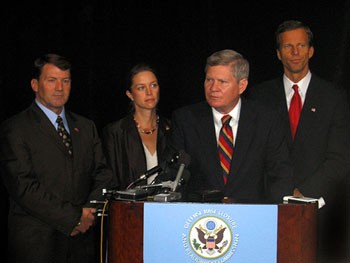
5.5. Banking and Finance
Timothy Peter Johnson's leadership in financial policy was notably demonstrated during his tenure as Chairman of the Senate Banking, Housing, and Urban Affairs Committee. In this capacity, he played a critical role in advancing key nominations and legislation within the financial sector.
As chairman, Johnson actively pressed for the confirmation of Richard Cordray, President Barack Obama's nominee for the chairman of the Consumer Financial Protection Bureau (CFPB). Despite significant opposition from Republican senators, Johnson successfully brought Cordray's nomination to a committee vote. The committee approved Cordray's nomination along party lines with a 12-10 vote. Following this, Cordray was ultimately confirmed by the full Senate with a 66-34 vote, a testament to Johnson's influence and determination in the financial regulatory landscape.

5.6. Other Key Issues
Johnson's policy positions and voting record covered a broad spectrum of issues, often reflecting his role as a centrist Democrat who at times aligned with his party and at other times diverged based on his assessment of what was best for his constituents and the nation.
In the House, Johnson was among the minority of Democrats who voted in favor of the Personal Responsibility and Work Opportunity Act of 1996, a significant welfare reform bill. He also supported the repeal of the Federal Assault Weapons Ban. Demonstrating a pragmatic approach to fiscal policy, he was one of a minority of Democrats to vote for President George W. Bush's 2001 tax cut. On January 31, 2006, Johnson was one of only four Democrats who voted to confirm Judge Samuel Alito to the Supreme Court of the United States. He also publicly called for "broadened use" of the death penalty.
Johnson was among the minority of senators who voted against the Unborn Victims of Violence Act, a measure strongly supported by anti-abortion groups. While in the House, he was one of only 16 congressmen to vote against the Telecommunications Act of 1996, a bill that aimed for deregulation and increased competition in the communication sector and received strong support from Republicans, business groups, and most Democrats.
Regarding healthcare, Johnson was a supporter of President Obama's health reform legislation. He voted in favor of the Patient Protection and Affordable Care Act in December 2009 and for the Health Care and Education Reconciliation Act of 2010.
In environmental and conservation efforts, in May 2010, Johnson introduced the Tony Dean Cheyenne River Valley Conservation Act of 2010. This bill proposed designating over 48 K acre (48.00 K acre) (about 73 mile2 (190 km2)) of the Buffalo Gap National Grassland as protected wilderness, which would have established the first national grassland wilderness in the country while still allowing for the continuation of grazing and hunting on the land.
On December 18, 2010, Johnson cast his vote in favor of the Don't Ask, Don't Tell Repeal Act of 2010, a landmark legislative action that ended the policy preventing openly gay, lesbian, or bisexual people from serving in the military.

6. Political Campaigns and Electoral History
Timothy Peter Johnson's political career involved numerous successful campaigns at both the state and federal levels, culminating in his distinguished tenure in the U.S. House and Senate.
6.1. South Dakota Legislature
Johnson began his political journey in 1978, securing a seat in the South Dakota House of Representatives. He served in the House from 1979 until 1982. Following this, he continued his legislative career by serving in the South Dakota Senate from 1983 to 1986, concurrently working as Clay County deputy state's attorney in 1985.
6.2. U.S. House of Representatives
Johnson was elected five times to represent South Dakota as the at-large member of the United States House of Representatives, serving from 1987 to 1997. During his decade in the House, he consistently focused on issues vital to his constituents, including agriculture, rural development, protecting Medicare and Social Security, and expanding access to healthcare.
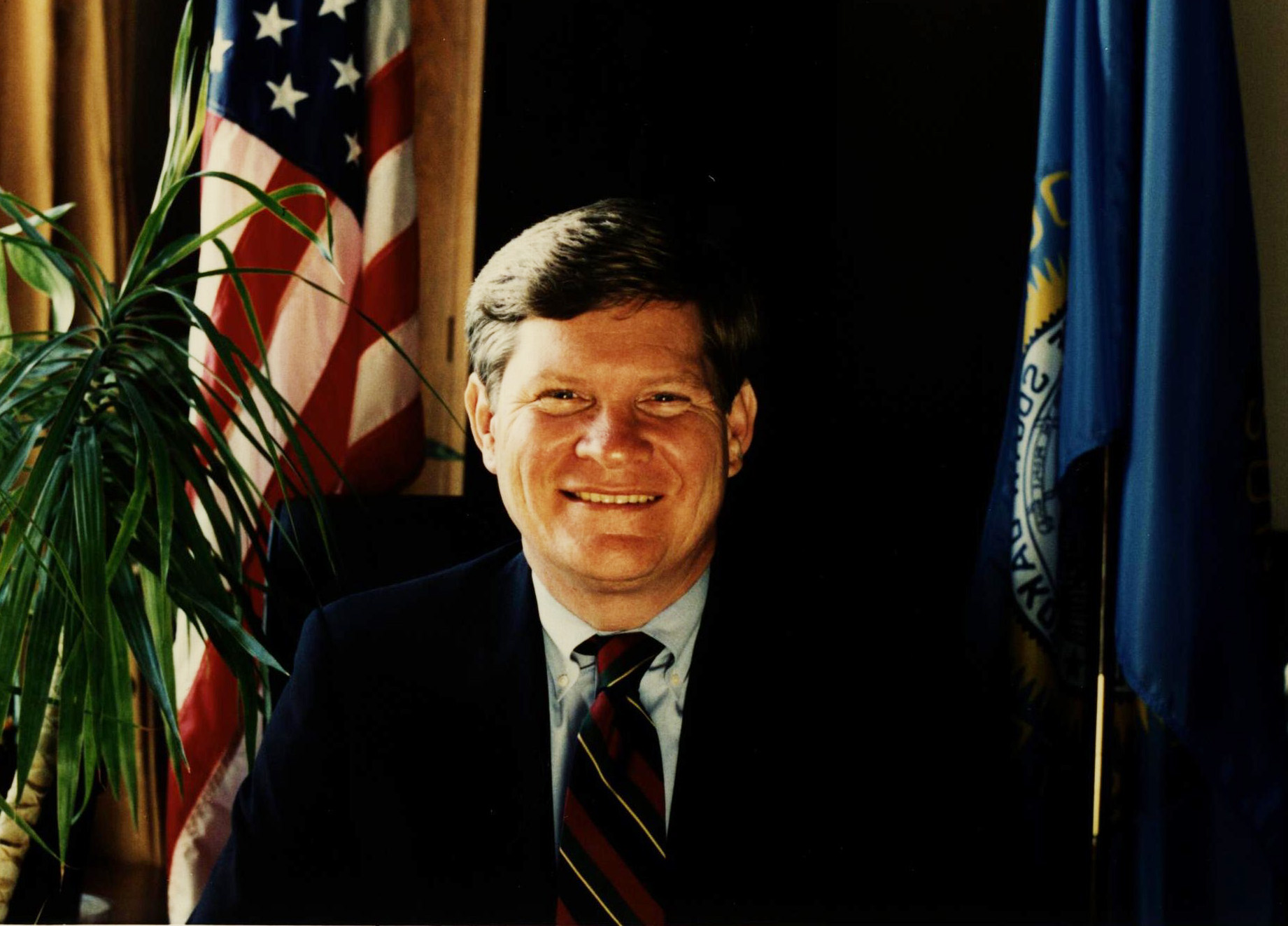
6.3. 1996 U.S. Senate campaign
In 1996, Johnson decided to run for the United States Senate. In a closely contested race, he narrowly defeated the three-term incumbent Republican Senator Larry Pressler. This victory was particularly significant as Johnson was the only Senate candidate that year to defeat an incumbent in a general election, a year that saw 13 open Senate seats.

6.4. 2002 U.S. Senate reelection campaign
Johnson faced another challenging campaign in 2002, where he was reelected by a narrow margin of just 524 votes over U.S. Representative John Thune, who had previously succeeded Johnson in South Dakota's at-large House seat. This race was widely perceived as a proxy battle between then-President George W. Bush, who had comfortably carried South Dakota in the 2000 presidential election, and then-Senate Majority Leader Tom Daschle. A crucial factor in Johnson's victory was his overwhelming support among the Oglala Sioux, South Dakota's largest tribe, among whom he secured 94% of the vote.

6.5. 2008 U.S. Senate reelection campaign
Johnson sought reelection in 2008, demonstrating remarkable resilience after recovering from his serious cerebral hemorrhage. Early polls indicated that he was likely to defeat his Republican challenger, Joel Dykstra, which he ultimately did by a significant margin, securing 62.5% of the vote. In January 2008, Johnson officially endorsed Barack Obama for president in the Democratic primary.
6.6. Electoral History
| Year | Candidate | Party | Votes | Pct | Candidate | Party | Votes | Pct | Candidate | Party | Votes | Pct | Candidate | Party | Votes | Pct |
|---|---|---|---|---|---|---|---|---|---|---|---|---|---|---|---|---|
| 1986 | Tim Johnson | Democratic | 171,462 | 59.2% | Dale Bell | Republican | 118,261 | 40.8% | ||||||||
| 1988 | Tim Johnson (incumbent) | Democratic | 223,759 | 71.7% | David Volk | Republican | 88,157 | 28.3% | ||||||||
| 1990 | Tim Johnson (incumbent) | Democratic | 173,814 | 67.6% | Don Frankenfeld | Republican | 83,484 | 32.4% | ||||||||
| 1992 | Tim Johnson (incumbent) | Democratic | 230,070 | 69.1% | John Timmer | Republican | 89,375 | 26.9% | Ronald Wieczorek | Independent | 6,746 | 2.0% | Robert J. Newland | Libertarian | 3,931 | 1.2% |
| 1994 | Tim Johnson (incumbent) | Democratic | 183,036 | 59.8% | Jan Berkhout | Republican | 112,054 | 36.6% | Ronald Wieczorek | Independent | 10,832 | 3.5% |
| Year | Candidate | Party | Votes | Pct | Candidate | Party | Votes | Pct | Candidate | Party | Votes | Pct |
|---|---|---|---|---|---|---|---|---|---|---|---|---|
| 1996 | Tim Johnson | Democratic | 166,533 | 51.32% | Larry Pressler (incumbent) | Republican | 157,954 | 48.68% | ||||
| 2002 | Tim Johnson (incumbent) | Democratic | 167,481 | 49.62% | John Thune | Republican | 166,949 | 49.47% | Kurt Evans | Libertarian | 3,071 | 0.91% |
| 2008 | Tim Johnson (incumbent) | Democratic | 237,866 | 62.49% | Joel Dykstra | Republican | 142,778 | 37.51% |
7. Personal Life
Timothy Peter Johnson's personal life was centered around his family. He married the former Barbara Brooks in 1969. Together, they had three children: Brooks, who resides in Millis, Massachusetts; Brendan, who served as the United States Attorney for the District of South Dakota; and Kelsey Billion, who lives in Sioux Falls, South Dakota. The couple was also blessed with eight grandchildren. At the time of his passing, Johnson and his wife resided in Sioux Falls.
In 2004, Johnson underwent treatment for prostate cancer. Subsequent tests confirmed that he was clear of the disease.

8. Death
Timothy Peter Johnson passed away in Sioux Falls, South Dakota, on October 8, 2024, at the age of 77. His death was caused by another stroke. A funeral service was held for him on October 18 at Our Savior's Lutheran Church in Sioux Falls. The service was well-attended by hundreds of people, including many politicians with whom Johnson had served throughout his distinguished career. Following the service, he was laid to rest at Woodlawn Cemetery in Sioux Falls.
9. Legacy and Assessment
Timothy Peter Johnson's political legacy is defined by his steadfast dedication to public service and his pragmatic approach to governance, particularly benefiting the people of South Dakota. As the last Democrat to hold statewide or congressional office in South Dakota, he left a lasting mark on the state's political landscape, demonstrating that a centrist Democratic platform could resonate with a broad electorate in a predominantly conservative state.
Johnson's key contributions included securing vital clean drinking water projects across South Dakota, significantly improving the quality of life for hundreds of thousands, including underserved communities like the Pine Ridge Indian Reservation. His relentless advocacy for country of origin labeling and support for small-scale family farms underscored his commitment to protecting local agricultural interests and ensuring fair practices for producers.
His efforts in national defense were notable, especially his role in preserving Ellsworth Air Force Base, which was crucial for the state's economy and national security. As Chairman of the Senate Appropriations Subcommittee on Military Construction and Veterans' Affairs, he secured unprecedented full and timely funding for veterans' healthcare, reflecting his deep commitment to the welfare of those who served. Furthermore, his leadership as Chairman of the Senate Banking Committee, particularly his persistence in the confirmation of Richard Cordray for the Consumer Financial Protection Bureau, highlighted his dedication to consumer protection in the financial sector.
Beyond specific policies, Johnson's resilience in returning to the Senate after a severe cerebral hemorrhage in 2006 became a powerful symbol of his dedication and perseverance. His ability to overcome such a significant health challenge and resume his duties earned him widespread admiration and respect across the political spectrum. His career exemplifies a focus on tangible improvements for communitys and a commitment to balancing diverse interests, solidifying his reputation as a dedicated public servant who significantly contributed to social progress and the welfare of vulnerable populations throughout his long career.